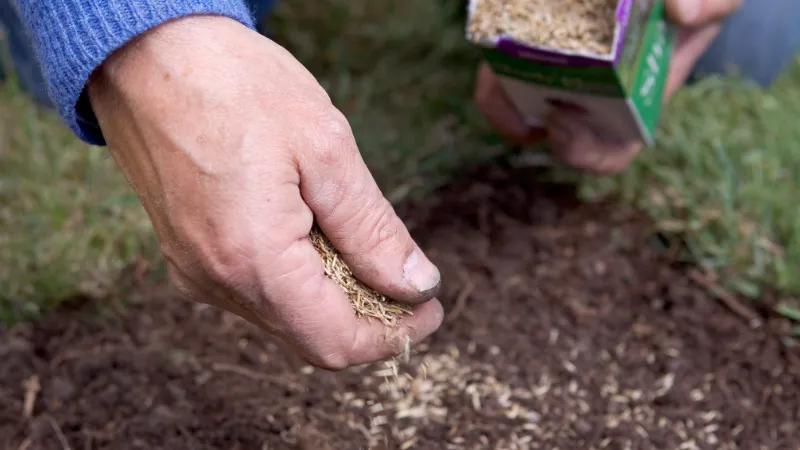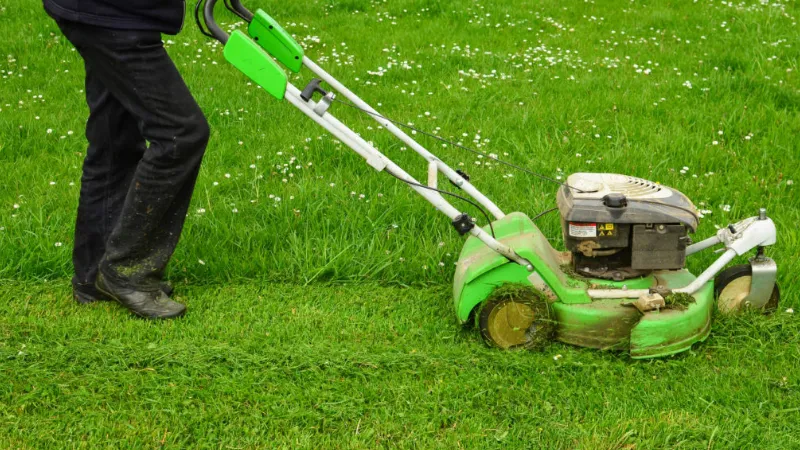How long does grass seed last? The lifespan of grass seed is influenced by the crop’s quality, growing environment, species, and storage method. Find out below how to tell when grass seed is bad.
If stored properly, the lifespan of grass seeds varies from 18 months to 5 years, depending on the variety you choose and whether you open the package.
- Grass seed can last up to five years if it is kept properly sealed and unopened.
- Open grass seed can last up to 18 months when stored properly.
For more information, keep reading.
Grass Seed Shelf Life
Grass has an expiration date just like the majority of natural products. Try to use seeds within two to three years of purchase as a general rule. Remember that after the first two years of storage, the likelihood of seed germination will decrease by about 10–20% per year.
Let me give you a quick example:
One in five seeds might actually germinate if your bag of seeds is older than ten years. Not good, right?
Try to use those seeds as soon as possible, or at the very least, within the first two years of purchase. Having said that, everything depends on how you store your seeds; however, we’ll talk more about that later.
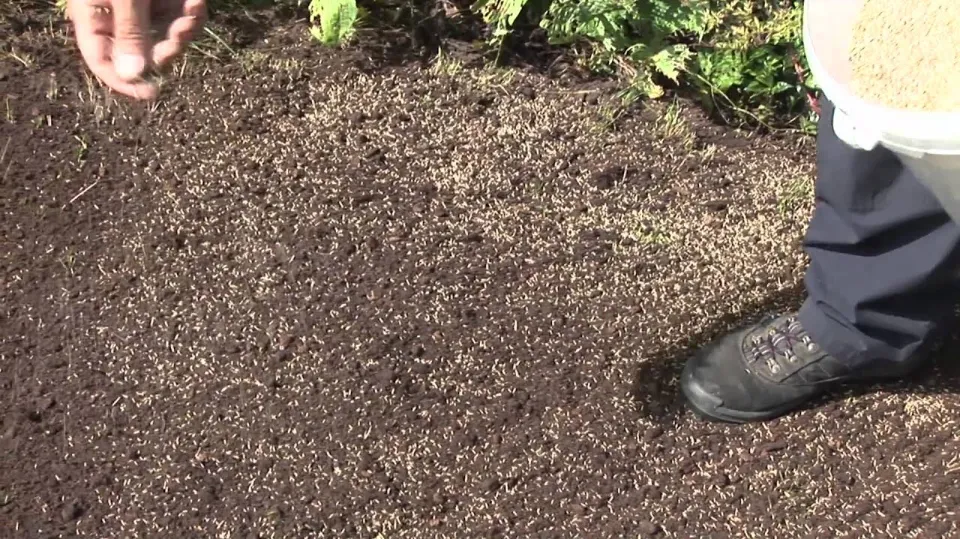
So How Long Will Seeds Keep?
It’s not quite as easy to simply stamp an expiration date on a bag of grass seed to know how long it will keep. Unopened bags of seeds may last longer than opened ones, but how you store them does have a significant impact on how long they will stay healthy.
An unopened bag will last at least five years when stored properly, while an open bag can last up to 18 months. How do I know this?
Well, based on the knowledge of those who are knowledgeable than I am, i.e., the experts at the According to the Oregon State University Seed Lab, if the seeds are stored in the right conditions, grasses that grow in hardiness zones 3 to 9 (like ryegrass) can last up to 5 years.
The typical storage life of other popular turf types like fescue or Bermuda is up to three years. But bear in mind that while in storage, the likelihood of germination is still diminished, so you’ll need to plant more seeds per square foot because some of them won’t germinate.
Will Grass Seed Go Bad When Expired?
It can be challenging to determine if grass is past its prime if there are no outward signs of deterioration, as the expiration date on the bag is only a rough estimate. How you store your grass seeds will determine everything.
If you’re on the fence about sowing the expired seeds, carefully examine the seeds for evidence of fungi. Throw them away if they are clumpy or wet. You haven’t properly stored them, if you’ve done this.
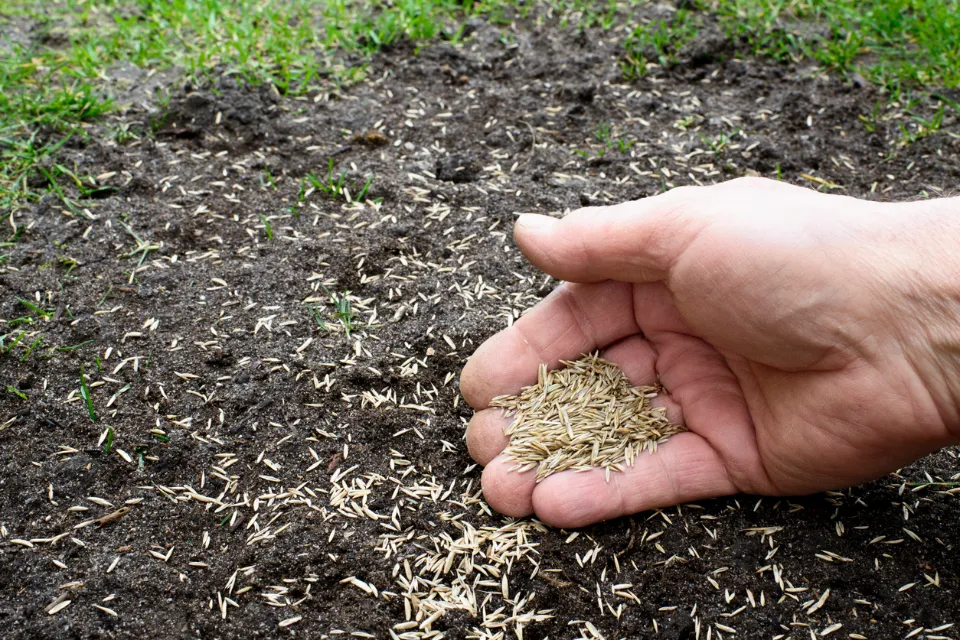
Factors Affecting Seed Viability
Unfortunately, the ideal conditions for seed storage are frequently exactly the opposite of how homeowners store grass seed. Storage conditions have a significant impact on the viability of stored seeds of all kinds. Generally speaking, seeds will stay viable the longest if kept in cool, dry conditions, which are not typical in most garages and sheds. The factors influencing seed viability include:
- moisture level in seeds.Although this varies depending on the species, most seeds are best with an internal moisture level of 10% to 20%. Seeds that either absorb higher levels of humidity or lose moisture and fall below this level are likely to perish. Normally, seeds rarely experience internal moisture levels below their ideal ranges, but in humid environments, they are more susceptible to excessive moisture absorption.
- Storage temperature.For most seeds, ideal storage conditions are above freezing and below 60 degrees F. The viability of seeds can be severely harmed by temperatures above 100 degrees.
- Storage humidity.The moisture content of seeds is liable to change if they are kept in open containers or cloth sacks. They may absorb humidity in humid climates.
Read about
Reasons Your Grass Didn’t Grow
If the grass seed you planted didn’t germinate, it might not have been the seed’s fault. When trying to grow grass, there are a lot of other things that could go wrong and probably will.
When they rake their yards in the spring and discover bare spots, many homeowners apply grass seed, but cool, wet weather can prevent germination. When air temperatures rise to at least 60 degrees and soil temperatures average 55 degrees, grass seed will begin to sprout.
Germination can also be hampered by an excessive amount of water. While watering newly planted grass seed is beneficial for growth, excessive watering will not hasten its growth. Excessive spring rains can delay germination.
It can be more difficult for grass seed to germinate in places with insufficient sunlight and excessive shade. Trees thrive in shady areas more than grass seed does. You might have a hard time getting grass to grow if your shaded area only gets 1–2 hours of sunlight each day. Pachysandra or ivy are excellent ground covers to take into consideration in these areas.
How Can You Tell If Grass Seed Has Gone Bad?
Nowadays, everything has an expiration date, even grass seed. A sell-by date will be visible on any seed you purchase from your neighborhood home and garden store. The only thing that has changed if your seeds are past their sell-by date is the likelihood of germination. This does not mean that they are truly dead, like milk that has gone bad. Don’t disregard visual inspection, though, as the presence of mold or fungus may be a sign that moisture has harmed the grass seed.
You can find out if the seeds are viable by conducting a DIY germination test. Simply put 10 seeds on a damp paper towel and seal the bag. Check for germination after 10 days by keeping the bag in a warm location. The viability rate of the seed is less than 50% if you discover that fewer than five of the seeds sprout. You should plant twice as much as is advised at a 50% viability.
To develop your lawn maintenance strategy, learn how to identify crabgrass. Below will give you a full explanation of what is crabgrass.
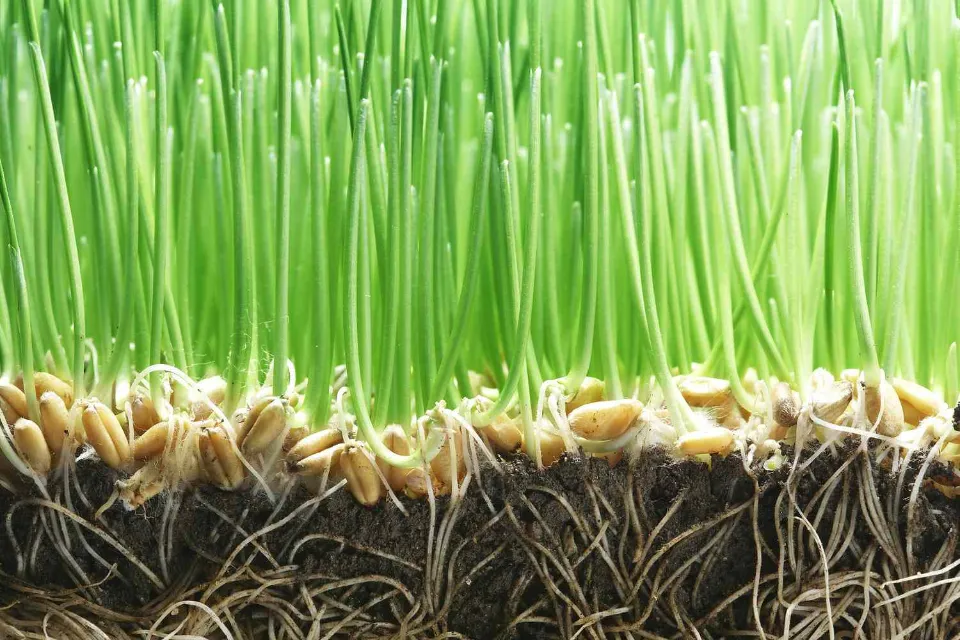
How to Store Grass Seed to Make It Last Longer?
The length of time that grass seed remains viable can be impacted by humidity, pests, storage weevils, sunlight, and drastic temperature changes.
Follow these tips to increase the lifespan of your grass seed:
- The grass seed should be kept in an airtight, rigid, closed-top container.
- Date it with the time you bought or opened it.
- Before sealing the container, place desiccant packs inside to prevent humidity.
- Keep the seed in an area that is always dark, dry, and cool.
- Around 40 to 50 degrees Fahrenheit are the best storage temperatures for grass seed.
- Avoid using sheds or garages that lack heat.
- Offset the box from the ground.
- Make sure there is enough airflow around the storage container.
Can you mow wet grass? Short answer: No. Whether it’s early morning and the lawn is still dewy, a rainstorm just ended, or you just ran your sprinklers, you should skip the mow for now. Please read on for more detailed information.
How to Check If Seeds Are Viable?
Try out my seed testing hack right away. Since some grass seeds are likely to stay viable for a long time after they have expired, this is a simple way to check their viability.
Step 1: Grab a paper towel and spritz it with a little water.
Step 2: Put 5 or 6 seeds in the paper towel, then put the paper towel in a warm place. Towel placement on top of a radiator or a clothes dryer is what I would advise.
Step 3: Observe whether any of the seeds sprout after a few days.
That’s all there is to it, so give this test a shot before you throw away any expired grass seeds you may have.
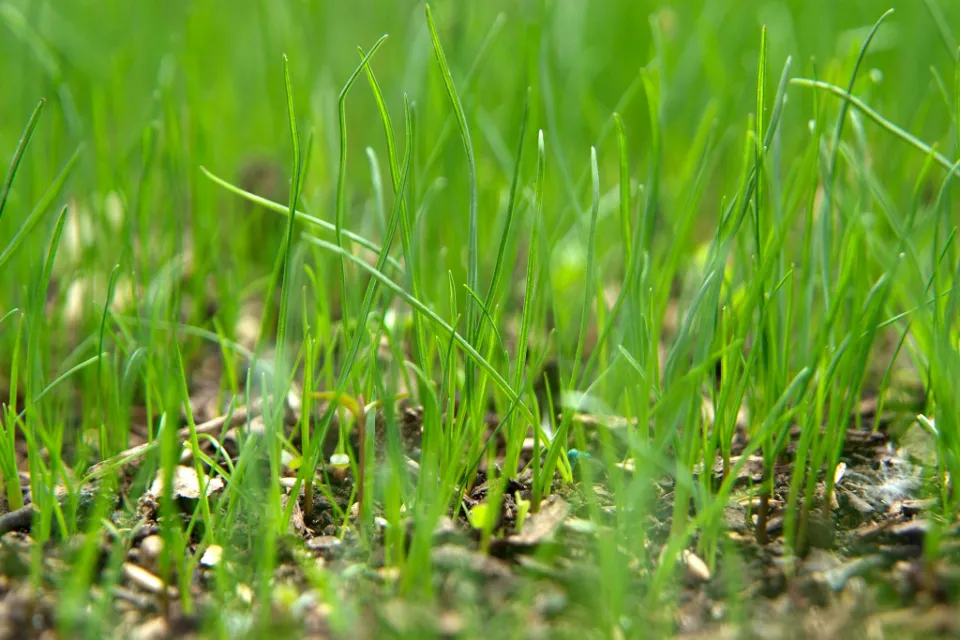
FAQs
Does Grass Seed Go Bad When Frozen?
Whichever variety of grass seed you choose to freeze (i.e., warm-season or cold-season seeds), most species can withstand short freezing periods. In general, grass seeds can be briefly exposed to freezing temperatures even if they have not yet reached the germination stage.
Will 10 Year Old Seeds Still Germinate?
It is very likely that some of those seeds, which are 10 years old, will sprout if they were stored in ideal conditions. For at least three years, most grass seeds remain healthy. Only 10 to 20% of the seeds may sprout after this time.
Can I Store Grass Seeds over Winter?
The answer is yes, as long as the grass seed is correctly stored below 90 degrees Fahrenheit in a dry location like the basement, it will stay viable for up to 18 months. Regularly inspect the stored bag for rodent or moisture damage.
When Should I Plant Grass Seeds?
Plant the seeds between late summer and early fall to promote rapid germination. The soil is still warm during these times, the daytime temperatures are moderate, and the evenings are cooler.
However, if you miss the chance to plant in late summer or early fall, try mid-spring instead.
Summary: How Long Does Grass Seed Last?
Depending on the species you choose and whether the pack is open, grass seed lifespans can range from 18 months to more than five years with the proper storage.
- Unopened grass seed can last up to five years if stored properly.
- Open grass seed can remain viable for up to 18 months when stored properly.
A store-bought grass seed box will typically include the germination test date and germination rate. New grass typically has a germination rate of over 80%, so if you store your grass properly and use it within 18 months of purchase, this should be pretty accurate.
If you have any questions, please leave a comment. My Prime Home tries to give you the best home improvement information. Don’t forget to share the post. Thank you for reading.
